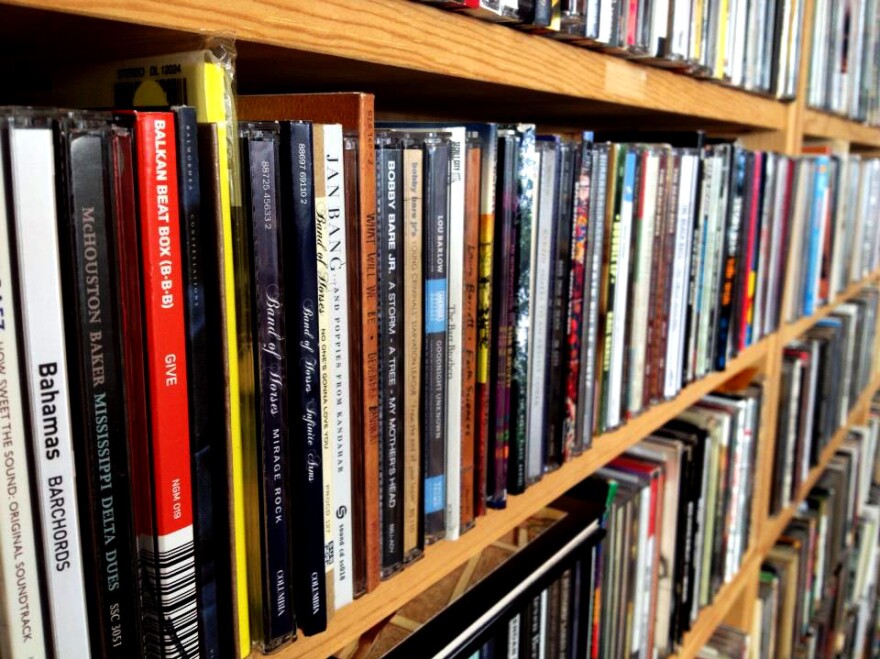We get a lot of mail at NPR Music, and amid the value-packed coupon booklets we'll never open is a slew of smart questions about how music fits into our lives — and, this week, what to do about an unruly CD collection.
Cindy Nelson writes: "On the spectrum of hoarding, I'm a pack rat, and I still can't let go of my huge CD collection. I've moved with my CDs to nine different states. Intervention, please."
I cannot envision a person less qualified to answer this question than I am. After I perish — no doubt crushed like a potato bug while trying to move a Q*Bert machine up my front steps — my children will pay tribute to me by encasing my body in a mausoleum made of glued-together jewel cases. I have, no lie, tens of thousands of CDs, and while I keep them confined to my basement, I've got a bit of a media-hoarding issue myself. So I feel you.
That said, I am more than qualified to be a gigantic hypocrite — based on a lifetime of hypocrisies large and small — and can thus suggest an approach that might work for you. Maybe I'll even try it myself someday!
I know lots of people will suggest shedding a physical collection entirely and going all-digital (and for some, that may well work), but I'm a noisy proponent of music you can hold in your hand and see on a shelf, with art you can study and display, that won't disappear in an instant when your hard drive zonks out. I love music as a tangible object, just as I love — near the eve of Record Store Day — to visit places where music is discussed, displayed, sold and treasured. If you've got a huge CD collection, you probably feel the same way, and aren't going to want to be told otherwise. Thankfully, that's not what I'm here to tell you.
What I do recommend is what I tell anyone and everyone who's trying to tackle a gigantic mess of a cleaning or organizational task: The greatest, fastest way to make progress is to subtract, subtract, subtract. If you've moved your CDs to nine different states, then you've probably noticed how many of those CDs have gone unopened in all nine of 'em — right? Anything you can remove from your surroundings, never to be replaced or seen again, is more blank space you've reclaimed; more space to sort out what remains, more ease with which you can find the stuff you care about. Sift through your collection with the most unsentimental eye you can muster, ask yourself if you can imagine ever listening to a given item over all the other available choices, and lose what doesn't pass that test.
More to the point, think about the age we live in: With the exception of obvious rarities you'd never part with anyway, most everything in a given CD collection is eminently replaceable, whether physically or digitally. If you haven't listened to Spin Doctors' Pocket Full of Kryptonite since it came out, I can assure you: They pressed a lot of copies of the thing, and many thousands of people are willing to part with theirs for cheap in the unlikely event you come looking for it.
So don't look at it as "getting rid of your CD collection." Look at it as streamlining — become a selective saver the way you've no doubt become a selective listener.
Got a music-related question you want answered? Leave it in the comments, drop us an email at allsongs@npr.org or tweet @allsongs.
Copyright 2022 NPR. To see more, visit https://www.npr.org.




